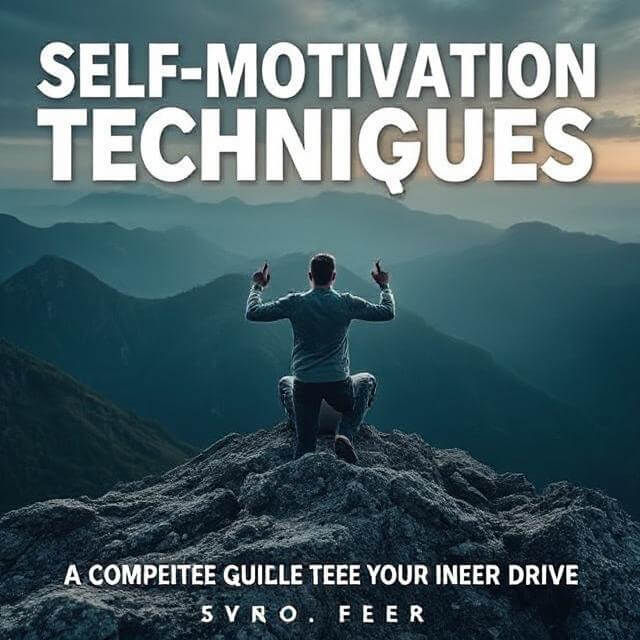Emotional Intelligence (EQ): The Most In-Demand Life Skill of the 21st Century
Table of Contents
- Introduction to Emotional Intelligence
- Why is Emotional Intelligence Important in 2025?
- The Five Key Components of EQ
- EQ vs IQ: What Matters More?
- Benefits of High EQ in Real Life
- How to Measure Emotional Intelligence
- How to Improve Your Emotional Intelligence
- EQ in Education, Career, and Leadership
- Emotional Intelligence in Relationships
- EQ in the Digital Age and Social Media
- The Neuroscience Behind EQ
- Top Emotional Intelligence Myths Debunked
- Books, Courses, and Tools to Build EQ
- Final Thoughts
- Frequently Asked Questions (FAQs)
Also you can Learn About Diffierent Business Startups With Us- Learn Sufficient Notes Business World
1. Introduction to Emotional Intelligence
Emotional Intelligence (EQ) refers to the ability to understand, manage, and express one’s own emotions while also recognizing and responding appropriately to the emotions of others. Unlike IQ, which measures cognitive intelligence, EQ deals with empathy, self-regulation, motivation, and interpersonal skills.
Coined by psychologist Daniel Goleman, EQ gained global recognition in the 1990s and has since evolved as a core component of success — both personally and professionally.
“In a very real sense we have two minds, one that thinks and one that feels.” — Daniel Goleman
2. Why is Emotional Intelligence Important in 2025?
In a world driven by AI, automation, and digital connectivity, human-centric skills like empathy, adaptability, and communication are irreplaceable. Emotional Intelligence has become one of the most in-demand soft skills according to LinkedIn, Forbes, and World Economic Forum.
At Learn Sufficient Notes, we believe that understanding and improving EQ is no longer optional — it’s essential for thriving in modern life.
📊 Trending Reasons for EQ Demand:
- Remote work has increased the need for virtual empathy.
- Mental health awareness has made emotional regulation a priority.
- Diverse teams require cultural sensitivity and emotional adaptability.
- Leaders must now coach and collaborate more than command.
3. The Five Key Components of EQ
Daniel Goleman outlined five core areas that define Emotional Intelligence:
1. Self-Awareness
- Ability to recognize your own emotions and how they affect your thoughts and actions.
- Includes emotional insight and confidence.
2. Self-Regulation
- Ability to control impulsive behaviors and manage emotions healthily.
- Promotes adaptability, trustworthiness, and integrity.
3. Motivation
- Internal drive to pursue goals with energy and persistence.
- Strongly tied to achievement and optimism.
4. Empathy
- Ability to understand others’ emotional makeup.
- Critical for social harmony, leadership, and inclusiveness.
5. Social Skills
- Managing relationships to move people in desired directions.
- Includes communication, conflict resolution, and leadership.
At Learn Sufficient Notes, we cover each of these areas through practical frameworks and actionable strategies.
4. EQ vs IQ: What Matters More?
IQ may get you into college, but EQ determines how far you’ll go in life. In fact:
| Trait | IQ | EQ |
|---|---|---|
| Measured By | Tests (logic, math, verbal) | Behaviors, reactions, relationships |
| Determines | Academic ability | Personal/professional success |
| Developed Through | Study & knowledge | Life experience, reflection, practice |
| Most Valued In | Exams, technical fields | Leadership, management, relationships |
Studies show that EQ accounts for nearly 90% of success in top performers.
5. Benefits of High EQ in Real Life
🌟 Personal Life:
- Better mental health
- Enhanced self-esteem
- Stronger coping mechanisms
💼 Professional Life:
- Stronger leadership
- Conflict resolution
- Higher job performance
❤️ Relationships:
- Empathy and listening
- Less drama, more harmony
- Improved communication
📈 Career Growth:
- Promotions and leadership roles
- Better networking
- Influence and persuasion
At Learn Sufficient Notes, we focus on integrating EQ practices into daily life for long-term transformation.

6. How to Measure Emotional Intelligence
Though not as standardized as IQ tests, EQ can be evaluated through:
✅ Popular EQ Assessments:
- MSCEIT (Mayer-Salovey-Caruso Emotional Intelligence Test)
- EQ-i 2.0 (Emotional Quotient Inventory)
- Bar-On Model
- 360-Degree Feedback
You can also use self-assessment quizzes on platforms like:
- Psychology Today
- MindTools
- Harvard Business Review
Want a custom EQ test tailored to students and professionals? Stay tuned on sufficientnotes.com — launching soon!
Also you can Learn About Diffierent Science Topics With Us- Learn Sufficient Notes Scientific World
7. How to Improve Your Emotional Intelligence
Improving EQ is a lifelong journey, but here’s a proven blueprint:
🧠 Step 1: Practice Self-Awareness
- Daily journaling
- Emotional check-ins
- Mindfulness meditation
🔄 Step 2: Build Emotional Regulation
- Cognitive reframing
- Deep breathing
- Delay reaction, increase reflection
🧭 Step 3: Strengthen Motivation
- Set personal goals
- Celebrate micro-wins
- Visualize success
👂 Step 4: Cultivate Empathy
- Listen without judging
- Ask deeper questions
- Understand different perspectives
🧩 Step 5: Enhance Social Skills
- Learn assertive communication
- Role-play social situations
- Give and receive feedback
Our in-depth EQ course on Learn Sufficient Notes helps you build each skill with real-world exercises.
Also You Can Learn About Diffierent World-Wide GK Topics With Us- Learn Sufficient Notes GK World
8. EQ in Education, Career, and Leadership
🎓 In Education
- EQ improves academic performance.
- Helps students manage stress, peer pressure, and expectations.
💼 In Career
- A high-EQ employee is more collaborative, creative, and adaptable.
- Recruiters now test emotional agility during hiring.
👑 In Leadership
- Great leaders like Satya Nadella, Jacinda Ardern, and Oprah Winfrey lead with empathy.
- EQ is the foundation of transformational leadership.
Want to explore emotional leadership frameworks? Visit sufficientnotes.com for detailed guides.
9. Emotional Intelligence in Relationships
EQ is the backbone of happy, meaningful relationships.
- Understand partner’s unspoken needs
- Express feelings without blame
- Build trust and emotional safety
Whether it’s romantic love, family, or friendships — EQ helps navigate emotional complexity with grace.
10. EQ in the Digital Age and Social Media
In 2025, most of our interactions happen online. That creates new emotional challenges:
- Misinterpretation of tone
- Online toxicity and cancel culture
- Digital burnout and overstimulation
EQ for Digital Well-being:
- Pause before reacting to DMs or comments.
- Set screen time limits.
- Practice “digital empathy” — treat others online as you would face-to-face.
Follow us at sufficientnotes.com for more digital EQ strategies.
11. The Neuroscience Behind EQ
Emotional Intelligence isn’t just philosophy — it’s science.
🧠 Brain Areas Involved:
- Amygdala: Triggers emotional responses.
- Prefrontal Cortex: Controls logic and impulse regulation.
- Anterior Cingulate Cortex: Detects emotional conflict.
- Insula: Helps feel empathy.
Neuroplasticity shows that you can train your brain to become more emotionally intelligent with consistent practice.
12. Top Emotional Intelligence Myths Debunked
❌ Myth 1: EQ means being “nice” all the time.
✅ Truth: EQ is about being authentic, not agreeable.
❌ Myth 2: EQ is fixed like IQ.
✅ Truth: EQ is highly trainable.
❌ Myth 3: Emotionally intelligent people don’t feel anger.
✅ Truth: They channel emotions productively.
At Learn Sufficient Notes, we tackle such myths through research-backed content.
13. Books, Courses, and Tools to Build EQ
📚 Best Books:
- Emotional Intelligence – Daniel Goleman
- Dare to Lead – Brené Brown
- The EQ Edge – Steven Stein
🎓 Top Online Courses:
- Yale’s “The Science of Well-Being”
- Harvard’s “Developing Yourself as a Leader”
- Learn Sufficient Notes’ “EQ Mastery in 30 Days” (Coming Soon!)
🛠️ Tools:
- Mood tracking apps (MoodKit, Reflectly)
- Daily journaling prompts
- Guided meditation apps (Calm, Insight Timer)
14. Final Thoughts
Emotional Intelligence (EQ) is not just a “soft skill” — it’s a life skill. In today’s hyper-connected, fast-paced world, EQ determines your ability to lead, grow, connect, and thrive.
At Learn Sufficient Notes, we are committed to helping you become more emotionally aware, resilient, and socially intelligent — because that’s what real success looks like in the modern era.
Also You Can Learn About I Personality Development With Us- Learn Sufficient Notes GK World
15. Frequently Asked Questions (FAQs)
❓ Can EQ really be developed?
✅ Yes! Through consistent practice and feedback, anyone can improve their emotional intelligence.
❓ Is EQ more important than IQ?
✅ In most real-world situations — leadership, relationships, conflict — EQ often matters more than IQ.
❓ Are there jobs where EQ is essential?
✅ Yes — healthcare, teaching, management, customer service, leadership, HR, and more.
❓ How early should EQ education begin?
✅ The earlier, the better. Children who learn EQ skills perform better academically and socially.
Ready to master Emotional Intelligence?
Explore more at 👉 Learn Sufficient Notes




